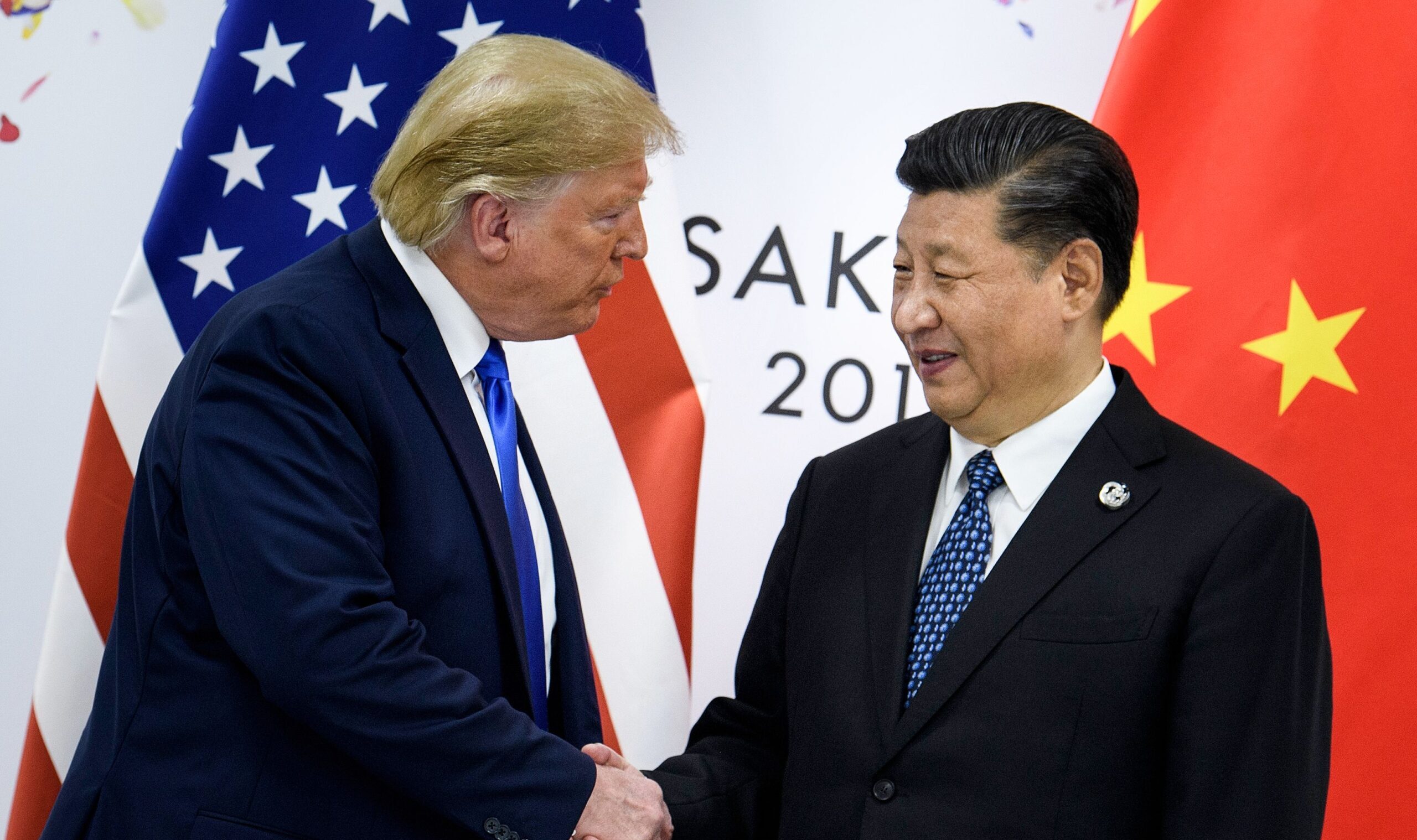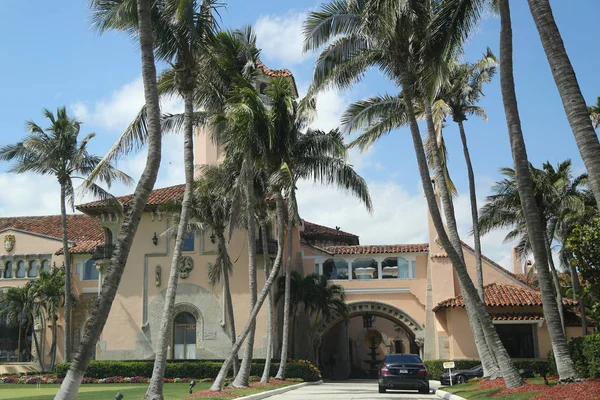Trump Must Put Americans Before Foreign ‘Partners’
To keep the U.S. safe and prosperous, the defense gravy train must end.

In a world long used to mulcting Uncle Sam of cash and soldiers in the name of solidarity and security, the wait for Donald Trump to return to the Oval Office is proving painful for Washington’s supposed “allies” and “partners.” They long ago learned the art of the deal with the U.S., claiming incapacity and vulnerability while begging for American alms.
Hence decades of security guarantees, loans and grants, weapons shipments, and troop deployments. Uncle Sam demanded in return only constant praise and sycophancy, and especially the admission that America was the essential power without which the free world could not operate, let alone survive. Even after the collapse of the Soviet Union and Warsaw Pact, Washington officials celebrated every alliance expansion, no matter how meaningless or irrelevant the new member. Such has been NATO’s steady expansion toward Russia, adding, for instance, the movie-set nation of Montenegro and yet another Russian neighbor, Finland, neither of which matter one whit for U.S. security.
America’s defense dependents, desperate to preserve their place on Washington’s defense dole, began preparing early as President Joe Biden’s popularity ratings dipped. They schemed with his administration to lock in subsidies and preferences for the supposedly hapless and helpless abroad. This effort accelerated after the president’s growing mental incapacity became impossible to hide. Vice President Kamala Harris’s “joyful” appointment as the Democratic presidential nominee briefly lifted spirits overseas, especially in Asia and Europe, since there is nothing that America’s faux friends would like more than a compliant and docile ignoramus as president. Then, alas, came November 5.
Now foreign governments have shifted to shameless flattery, pretending to be Trump-acolytes all along. Reported the Economist:
Like quiz-show contestants trying to bash the buzzer first, Volodymyr Zelensky, Ukraine’s president, and Binyamin Netanyahu, Israel’s prime minister, raced to congratulate Donald Trump on his victory—though each for very different reasons. The rush by these and other leaders around the world, such as Emmanuel Macron of France and Lai Ching-te of Taiwan, to ingratiate themselves with America’s next president reveals much about the perils and opportunities they foresee under Mr. Trump, whose only constancy in foreign policy is his unpredictability.
Although during his first term Trump exhibited a welcome willingness to occasionally challenge the decrepit and antiquated status quo, he also proved vulnerable to fawning blandishments from those skilled in milking the U.S. government. When foreign officials speak, Trump should remember the “Joe Isuzu” auto ads almost 40 years ago. Joe would make the most ludicrous claims, followed by the voiceover “he’s lying.” When Zelensky and Netanyahu, Macron and Lai, and the rest genuflect before Trump, begging for favors, he should hear the same.
The essence of international relations over the last eight decades has been foreign governments taking advantage of the United States. That they have desired to do so is nothing new. The essence of every nation’s foreign policy is advancing one’s interest at the expense of other states. That doesn’t mean there isn’t an opportunity for mutual gain. However, few government officials anywhere design policies to aid others. States rarely sacrifice anything other than a little cash for humanitarian efforts. Influence, security, and status almost always trump eleemosynary impulses.
Unfortunately, Uncle Sam has wasted billions on “foreign aid” that has reinforced dirigiste economic and authoritarian political policies. Worse, tens of thousands of Americans have needlessly died and trillions of dollars have been foolishly squandered in stupid foreign wars. Allies with the potential to become serious security partners have been infantilized and discouraged from taking over responsibility for their own nations and regions. U.S. officials who should have focused on addressing America’s domestic problems have preferred to play-act as masters of the earth, if not the universe.
Zelensky, Netanyahu, and Lai aptly illustrate the three major challenges facing U.S. policy. Zelensky is desperate to drag America into Ukraine’s war with Russia. Only a few months into the conflict he falsely blamed his nation’s errant missile strike in Poland on Moscow, demanding that NATO enter the war. Failing that, he hoped to suck in another NATO member, which could naturally turn the U.S. into a combatant. He has demanded that Washington allow him to use American weapons to bombard Russian territory, even though the U.S. would never accept similar action by Russia or anyone else. Now he is lobbying to keep American aid flowing, whether or not it will make a difference.
Zelensky cannot be blamed for any of this. He is simply putting his nation first. That’s what governments are created to do. Indeed, he has a valid complaint against U.S. policy. Washington and its allies helped create the current crisis by lying to both the Gorbachev and Yeltsin governments about expanding NATO up to its borders. Then the U.S. and fellow NATO members lied to Kyiv about bringing the latter into NATO. Next European governments lied about seeking to resolve the conflict through the Minsk accords. Finally, the U.S. refused to negotiate with Russia and discouraged Ukraine from doing so.
Instead of paying to continue a fruitless, destructive war, the U.S. should press for its end. In a post-election phone call Trump apparently urged Russian President Vladimir Putin not to escalate the war, but offered no convincing reason for Moscow to stop when it has been gaining territory. The U.S. and Europeans should be talking with Russia about a peace settlement that satisfies Russian security concerns while preserving a sovereign and independent Ukraine. This requires that Trump challenge both the domestic Ukraine lobby and the Europe forever-war caucus. Also necessary is the longer-term task of pulling the U.S. back from NATO, refashioning the organization to leave Europeans in charge of their own security. Although Trump sharply criticized the allies during his first term, his administration actually increased the number of troops in and money spent on Europe.
Netanyahu represents the other region with American involvement in a very hot conflict—several of them, in fact. Netanyahu is distrusted by his own people for shamelessly using the conflict to stay in power. Worse, he has turned a war of retaliation into one of annihilation, as the endless slaughter of Palestinians clears territory for settlement by his most rabid and violent supporters. He sees Trump as just another U.S. politician to be manipulated and then cast aside when no longer useful.
The president-elect also proved vulnerable to the bizarre charms of Saudi Crown Prince Mohammed bin Salman, whose government is more repressive than those of China, Iran, and Russia. MbS has jailed Americans for criticizing him. His minions murdered and chopped up journalist and U.S. resident Jamal Khashoggi, with the Trump administration acting as his defense attorney. After arming the Kingdom of Saudi Arabia in its genocidal campaign against Yemen, the Trump administration urged Riyadh’s recognition of Israel, for which America would have to pay: MbS is demanding a defense guarantee and regulation-free nuclear energy. Although favoring disengagement from Afghanistan and Syria, Trump allowed a dishonest and belligerent bureaucracy, headlined by officials like Jim Jeffrey, to block his plans. Trump also targeted Iran although it posed no threat to America and could be contained by Israel and the Gulf states. Netanyahu played on Trump’s fears and vanity to press the U.S. into a war with Tehran that would ravage the entire region. The president-elect can’t afford to be such a pushover this time.
Lai completes the trinity of threats. Although China is a serious economic challenge, it poses little military threat to America. The issue is not U.S. security—no one seriously believes that the People’s Republic of China plans to launch an armada toward Hawaii or California. Rather, Beijing is challenging Washington’s attempt to maintain its domination up to the PRC’s coast. Taiwan is as close to China as Cuba is to America, and the Kennedy administration almost went to war in 1962 to prevent Soviet military deployments on the latter island. The US has no vital interests in Taiwan warranting war. Trump has expressed skepticism about Taipei’s policies, especially its lackadaisical attitude toward its own defense, and should push back against those prepared to risk nuclear war over the island.
The Korean peninsula looks even more dangerous than when Trump left office. However, during his first term he glimpsed the only possible path toward a solution. Washington must engage Pyongyang. Absent talks with the North over its objective, essentially arms control with some swap of sanctions relief for limits on the latter’s nuclear development, Pyongyang is likely to continue expanding the number of nuclear weapons and increasing the accuracy and range of its missiles. Once North Korea can destroy American cities, the U.S. will be forced to rethink its alliance with South Korea.
Trump has already put Seoul on notice that he wants it to pay far more for Washington’s defense. Better still was Trump’s proposal to withdraw U.S. troops from the peninsula. The South has more than 50 times the GDP and twice the population of the North. Why shouldn’t the ROK handle its own defense? As for Pyongyang’s nuclear threat, there is substantial South Korean support for its own nuclear deterrent, something Trump has also suggested. There is no better place than the Koreas to let Trump be Trump, negotiating with the North and transforming America’s relationship with the South.
Many of the same principles apply to Japan, the Philippines, and other U.S. allies and partners in the region. Americans shouldn’t die for Scarborough Shoal, Mischief Reef, or similar peripheral controversies. Washington rightly is concerned about the independence of such countries, but China doesn’t threaten their independence. Moreover, giving such countries a blank defense check puts the U.S. at great risk.
The Biden administration, like so many of its predecessors, was more concerned with what foreign officials wanted than what Americans needed. The barely contained hysteria overseas over Trump’s election reflects fear that the good times of dealing with Uncle Sucker might really end this time. To succeed the president-elect must show uncharacteristic discipline and dismiss the tsunami of flattery coming his way. Ultimately, Trump’s most important duty will be to say no—and to do so again and again. Only then will he be able to pursue his agenda to “Make America Great Again.”
The post Trump Must Put Americans Before Foreign ‘Partners’ appeared first on The American Conservative.

